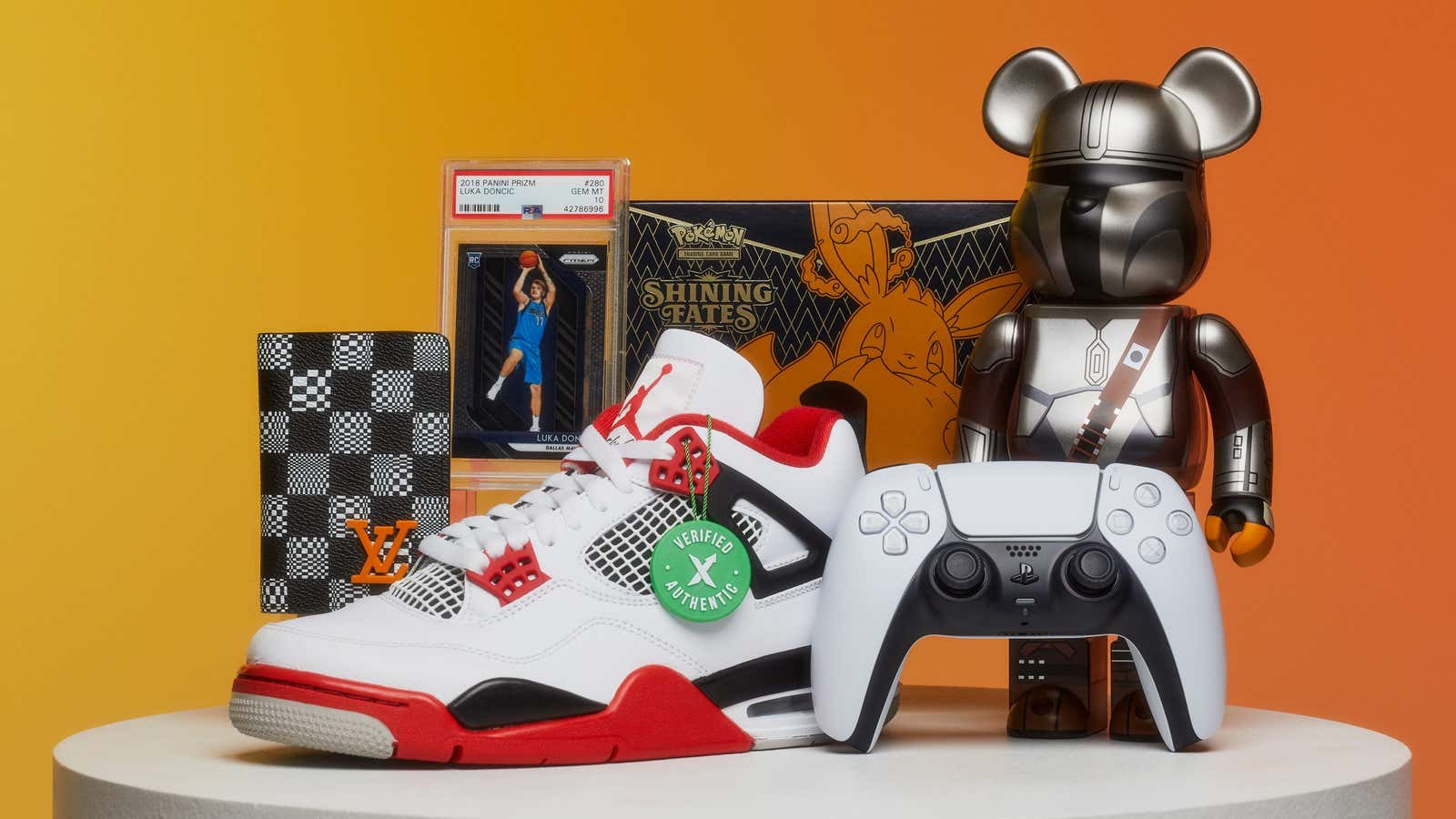In its early days, buying and selling sneakers was a niche hobby, with collectors scouring store bins and garage sales for rare finds and making deals through in-person meet ups. The internet and eBay changed that, opening the cloistered world to a wider audience and making it possible for sneaker fans to connect across distances.
Today sneaker resale has exploded, in part due to the rise of shops and sites that have turned reselling limited-release sneakers into a large and lucrative business. The online leader in this category is StockX. The Detroit-based company launched in 2016, billing itself broadly as a “stock market of things,” though its core business was and continues to be sneakers—specifically “deadstock,” meaning shoes that are pre-owned but unworn and authentic.
In a sign of just how big sneaker resale has become, on April 8 StockX announced a new round of funding that valued it at $3.8 billion, up from the $2.8 valuation it just notched in December.
The company had a strong year in 2020, despite the pandemic. In its announcement, it said $1.8 billion worth of merchandise moved through the site over the year, generating revenue of more than $400 million. That’s an increase from around $1 billion in merchandise sales in 2019.
Sneaker resale is a global opportunity
The resale market as a whole has been growing fast, even if it still just a fraction of the total sneaker business. In a July report, investment firm Cowen estimated the global resale market to be worth about $6 billion in 2019, while total sneaker sales were more like $100 billion. Still, Cowen predicted worldwide resale could rise to nearly $30 billion by 2030.
Sneakers continue to grow in popularity, pushing more shoppers into the market, while sneaker makers such as Nike and Adidas keep tight control over distribution. Since the resale market is based on shoppers not always being able to get the shoes they want at retail, it should create the conditions for plenty of buying and selling on StockX and other sites. In China, for instance, the sneaker resale market has been heating up, leading to venture-capital firms pouring money into startups such as Poizon and Nice.
StockX has been investing in its business outside the US. In 2020, more than 200 million buyers and sellers from across 200 countries and territories visited the site, it said. To help it keep expanding, late last year it opened three new authentication centers—the large facilities where it warehouses and examines shoes to make sure they’re not fakes—in Portland, Toronto, and Hong Kong, bringing its number of authentication centers to nine globally. While StockX already operated in Canada and Asia before opening the facilities, it said they would allow it to reduce shipping costs and ofter faster service and delivery to customers in those regions.
The company has also branched out to other products, such as streetwear, trading cards, and electronics. Shoppers unable to buy the PlayStation 5 at retail, for example, have been finding them on StockX.
In the meantime, the frenzy around limited-release drops of new sneakers continues to grow, leading to speculation that resale might be a bubble ready to burst. So far the market shows little sign of slowing. StockX and its investors seem confident it has plenty of room to expand.
